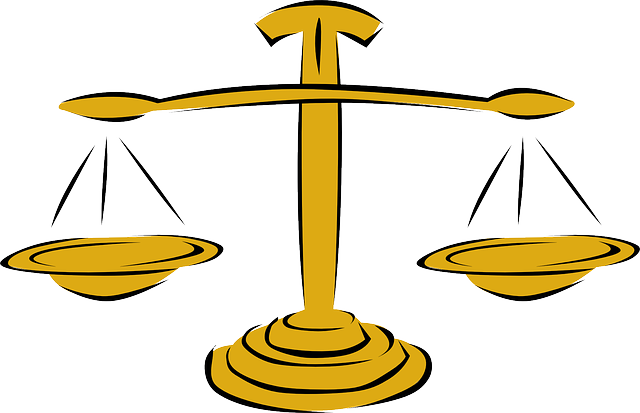
There’s nothing more antithetical to the rule of law than the fact that judges are not subject to the laws they interpret. Advocating for democracy necessarily requires us to ask why the laws that apply to the rest of us do not apply to judges who interpret them. This Thursday, May 1, is National Law Day of Action, an opportunity to reaffirm our commitment to democracy, an independent judiciary, and an independent legal profession — the backbone of democracy. I’ll speak at a Rally to Support Our Courts in Carlisle, Pennsylvania, to explain why, with democracy on the line and the rule of law under threat, it has never been more important to ensure judges who interpret the law are themselves subject to those same laws.
At a time when the rule of law is under attack, the courts are lauded as a bulwark against autocracy and painted by some as our best hope to protect against administration overreach and the dismantling of civil society. The courts are rightly the first line of defense against executive branch lawlessness. But holding judges up as great defenders of democracy and the rule of law strikes me as tone deaf and ironic, considering judges are not subject to federal anti-discrimination laws. While the judiciary serves as a check on the other branches of government, hypocritically, it vociferously opposes any checks or balances on judicial abuses of power.

Chrometa: Turning Time Into Billable Value For Modern Lawyers
Adoption of Chrometa represents more than a technological upgrade; it reflects a professional philosophy that values accuracy, transparency, and efficiency.
The despicable misconduct I have witnessed by life-tenured federal judges — some of the most powerful members of our government — should shake our confidence in the judiciary. Judges berating clerks as “stupid” and “idiots” for perceived mistakes. Firing clerks for no stated reason, with total disregard for clerks’ careers and reputations. Judges concealing the signs of aging or neurological conditions that render them unfit to serve, and pressuring their staff to help cover it up. Judges treating their clerks as personal assistants for private and family errands and misusing government resources. In some judicial chambers, two mistreated clerks were reassigned simultaneously, while the judge was never disciplined, simply able to hire and mistreat new clerks. In other chambers, entire staffs quit or were fired — a huge red flag — but judiciary officials claimed not to know about it. In most of these instances of judicial misconduct, the judges were never investigated, let alone disciplined, and continue to serve as life-tenured jurists.
Behind closed doors, in every federal circuit and courthouse, year after year, judges mistreat clerks with impunity. This misconduct would, in any other workplace — including Congress and the executive branch — be illegal.
Judges, far from being held to the highest ethical standards, are held to the lowest. That’s because the Third Branch — and its more than 30,000 employees — are exempt from anti-discrimination laws including Title VII of the Civil Rights Act and the Americans with Disabilities Act. Judges preside over anti-discrimination cases while themselves not subject to those same laws. A fix, the Judiciary Accountability Act (JAA), would correct this injustice and close this legal loophole, but due to congressional inaction and judiciary opposition to even a modicum of congressional oversight, efforts to introduce and reintroduce the JAA have failed to generate the broad bipartisan legislative support necessary to extend basic workplace protections to judiciary employees.
Beyond the lack of legal liability, judges are almost never disciplined internally (despite the judiciary’s claims that “self-policing” works just fine). Law clerks rarely file complaints, since they are not legally protected under Title VII against retaliation for speaking up. Under the formal judicial complaint process, the Judicial Conduct & Disability (“JC&D”) Act, over the past three years, only two complaints were filed by law clerks against judges in 2024, just three in 2023, and just one in 2022. If the judiciary cannot even promulgate effective workplace policies and reporting mechanisms, and is unable to self-police its own internal workplace disputes, they’re not well-equipped to pass judgment over litigants’ conduct.

Introducing LexisNexis Protégé™ in Lex Machina®
Lex Machina harnesses generative AI capabilities to revolutionize the way legal professionals interact with data to improve bottom line for their business.
The courtroom is a metaphor for the judiciary’s misplaced insistence that it remain above the laws it interprets: judges literally sit above litigants and lawyers on the dais, looking down upon them and meting out justice, while insisting they remain exempt from the law themselves. Judges — public servants tasked with the fair and impartial administration of justice — breach the public trust when they mistreat their clerks. Far from being accountable to those they serve, as long as they remain exempt from anti-discrimination laws, they are accountable to no one.
The way judges treat their clerks behind closed doors has larger implications for democracy, since their workplace conduct may spill over to their rulings. A case study of former Alaska federal judge (and known harasser) Joshua Kindred revealed that, while sexually harassing his law clerks, he also dismissed every sexual harassment claim that came before him during his five years on the bench.
The JAA was introduced in July 2021: since then, the judiciary has offered no good reason why they should be exempt from laws Congress extended to itself and the executive branch 30 years ago. Apparently, the judiciary insists on this unique exemption so judges can bully, harass, and retaliate against employees with impunity.
Last month, on the same day a former Minnesota bankruptcy judge resigned amid misconduct allegations, the federal judiciary released the results of a 2023 workplace conduct survey, underscoring that employees rarely report misconduct, and they lack confidence in internal reporting mechanisms. In fact, 64% to 73% of respondents who experienced wrongful conduct did not report using the internal Employee Dispute Resolution (EDR) process. No more than 20% of respondents who used the EDR process agreed the issue was thoroughly and impartially investigated. When asked about the outcome of reporting misconduct, the most common response (26% to 34%) was that no action was taken. Another common response (14% to 19%) was “I don’t know what was done.” Respondents who experienced mistreatment but did not report said they did not do so because they “didn’t think anything would be done;” they “didn’t trust that the process would be fair;” and they “feared retaliation.” And 58% of respondents said employees are not encouraged to report misconduct to the courts.
The statistic the courts are most proud of — that 80% of employees would recommend their workplace? That means 20% would not recommend the courts as a workplace. Not exactly the “exemplary workplace” the courts have been touting while resisting all efforts at transparency, accountability, oversight, and reform.
It is the height of injustice that judicial employees — who support the daily functioning of our courts — lack basic workplace protections. Yet whenever we witness judicial misconduct, too few are willing to call it out, considering the deference the legal profession grants judges. Consider this: former judge Kesha Tanabe resigned amid misconduct allegations last month on the very same day the judiciary released those survey results. Yet no lawyers, judges, or lawmakers spoke up about Tanabe’s resignation and the troubling misconduct allegations against her. In the month since this rare and newsworthy resignation, the judiciary appears to have taken no steps to assure judicial employees, the public, and Congress that there will be accountability for judicial misconduct going forward. In fact, evidencing the ineptitude of the federal courts regarding workplace conduct, apparently some judges tasked with judicial discipline did not even know a law clerk complaint was filed against Tanabe and withdrawn under pressure from the Eighth Circuit.
Clerks, including some who once aspired to become judges themselves, regularly tell me they have lost faith in the courts, due to mistreatment and gaslighting like this, which they describe as “pervasive” and “systemic” in the federal courts. This tracks with survey results indicating that the public has also lost faith with the courts. A judiciary that cannot hold abusive judges accountable for misconduct and does not hold itself to basic standards of workplace conduct, does not foster public trust and confidence in democracy or the rule of law. And judges, who consider themselves role models and exemplars of ethics, should model better behavior than the nonexistent standards to which they’re currently held.
The rule of law is under threat, but the threat also comes from inside the house: from judges themselves — the abusive ones, and their defenders in judiciary leadership, too. We must insist Congress hold judges accountable to basic workplace standards by reintroducing, holding a hearing on, and passing the JAA this year. We cannot allow them to put off the problem because it’s “too hard” or other priorities are “more urgent.” We should not have confidence in the federal courts to uphold the rule of law when judges are not themselves subject to the law.
It is particularly important now — as some hail federal judges as great defenders of democracy — that we are honest about very real problems in the courts — an institution lacking in transparency and accountability. Critiquing the courts in this way is wholly consistent with advocating for the rule of law. In fact, we should criticize the courts: it’s how we hold the institution accountable. Judges should be subject to the rule of law. Some judges believe they are immune from criticism, framing criticism as an attack on the courts and on the rule of law itself. I believe in an independent judiciary — independent from political pressure, not independent from the law.
I imagine some judges will make hollow statements on Law Day about upholding the rule of law. Those statements are meaningless, as long as judges are above the laws they interpret. Should the federal judiciary want to signal an actual commitment to the rule of law, chief judges should initiate misconduct investigations into judges known to mistreat clerks, which they are empowered to do even without a formal JC&D Act complaint; rather than simply occasionally pushing them out and otherwise sweeping misconduct under the rug. Additionally, following recommendations included in their 2025 Working Group report, the courts should compile a database of EDR and JC&D decisions. The judiciary should make it easier for employees to safely report misconduct; and encourage rather than discourage clerks from reporting. Lastly, they should explain to clerks not just the EDR process, but also the option to file a JC&D complaint, thereby signaling a true commitment to robust accountability, since most clerks I speak with have never heard of the JC&D Act.
Real accountability — and robust discipline for judges who abuse their power — would finally give law clerks, lawyers, and the public confidence in the courts. Given the courts’ size and sprawling, decentralized nature; enormous power disparity between judge and clerk; and small, isolated, hierarchical workplaces, we should be suspicious of the lack of complaints. Not just on Law Day, but every day, we should hold the judiciary to the highest ethical standards, not the lowest. Only once judges are subject to the rule of law, can we have confidence in the courts as a bulwark against autocracy.
Aliza Shatzman is the President and Founder of The Legal Accountability Project, a nonprofit aimed at ensuring that law clerks have positive clerkship experiences, while extending support and resources to those who do not. She regularly writes and speaks about judicial accountability and clerkships. Reach out to her via email at [email protected] and follow her on Twitter @AlizaShatzman.